Actress Harvey Virdi, known for her role as Dr Misbah Maalik on Hollyoaks, said she relished the chance to write about “strong Asian women” in the play Happy Birthday Sunita, despite her packed schedule.
Having first played at The Rifco in 2014, Happy Birthday Sunita has been revived at the same venue with a fresh line-up of female leads and a script that delves into the complex dynamics of the Johal family whose decades of “unfinished business and secrets” are revealed one night and leave the family reeling.
The 2023 version stars Indian TV and film actress Divya Seth Shah (Goodbye, Duranga, Jab We Met) who takes on the role of Tejpal, the matriarch of the Johal house.
Leicester-based actress Bhawna Bhawsar (Eastenders, Emmerdale, The Undeclared War) stars as Sunita, the reclusive birthday girl, and London-based rising star Rameet Rauli (Eastenders, Little English) plays Harleen, Tejpal’s high-maintenance daughter-in-law.
“The play is about family relationships and really the story of three women of different generations and how they're finding their way through to do what makes them happy,” Virdi told Eastern Eye.
“It’s so important to have strong south Asian characters because sometimes women in our south Asian communities are suppressed or told they can't do certain things because of cultural taboos, family and community, instead of being encouraged to achieve and fly.
“You have to live a certain way to fit the mould, because if you don’t, ‘what will people think, what will people say’. We have to break that.”
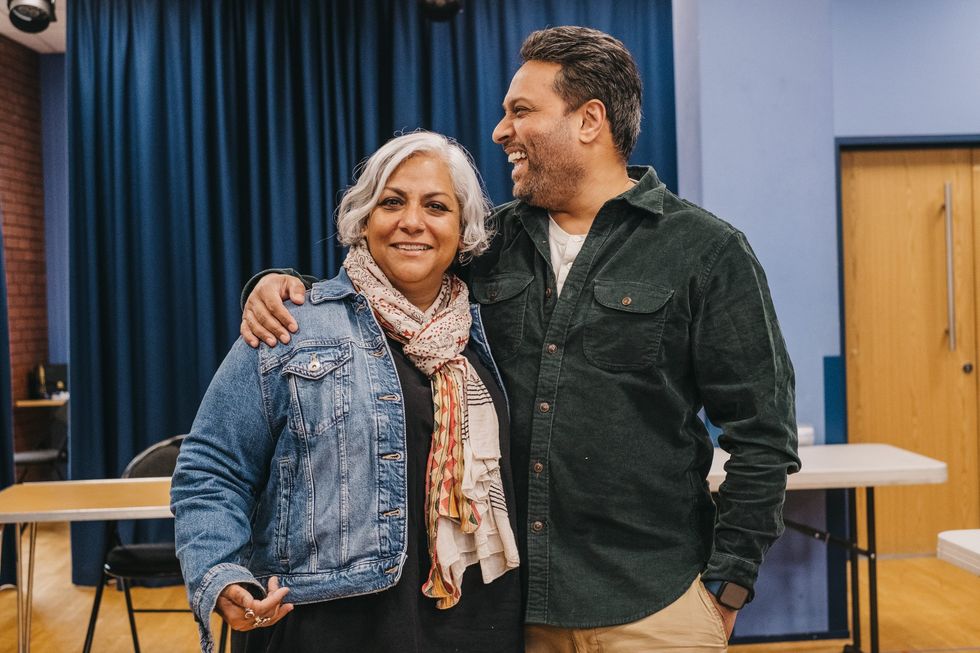
With Happy Birthday Sunita, Virdi looks at three generations of women who have been impacted by cultural norms, with one of the main themes being patriarchy and how the women in Johal family are held back by an absent father.
“The eldest female character is the mother, who is in her late 50s and has lived a certain life for a very long time and it's only now that she's kind of started to go, ‘I have a life. I'm entitled to live my life and I'm going to’.
“She also has to make peace with the fact that she was not one to encourage her daughter to live her life. And her daughter is holding on to that as well,” said Virdi.
“The other character is the daughter-in-law who has been brought up in a very open, loving way and doesn't understand why people just won't talk about stuff and get it out in the open.
“The women in this family have to find the bravery to say what they are feeling. It’s about realisations and being honest with yourself. Those are two canons.”
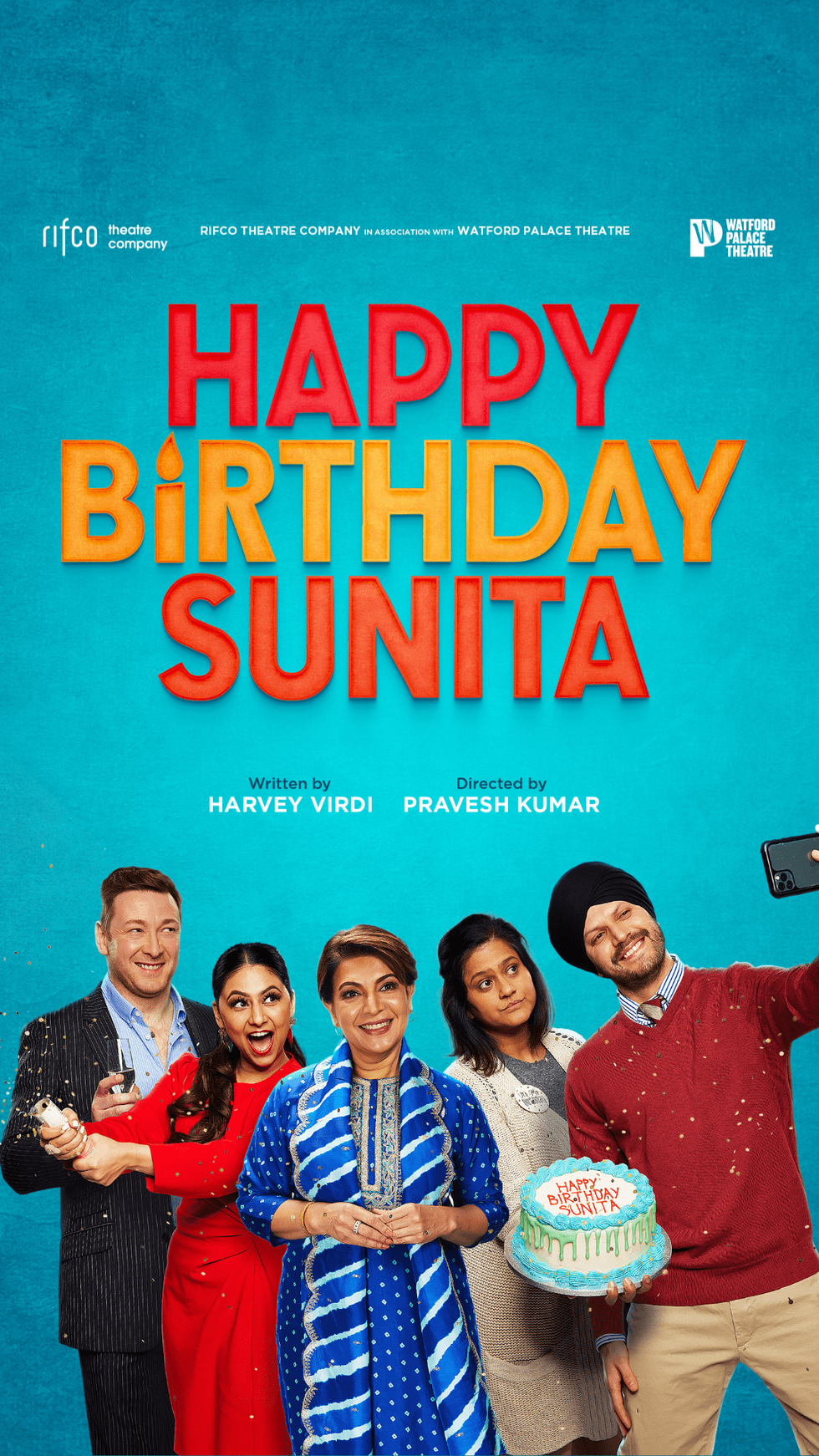
Virdi herself experienced breaking away from cultural norms.
The 48-year-old studied drama at school, but when it came to doing a degree, she joked that her parents reaction was, “eh, you just do your ‘nice’ degree and keep that (drama) as a hobby”. She ended up doing a degree in science and was a teacher in the subject for a number of years.
“I got to that crux in life and thought either I'm going to be a teacher forever, do it with love and do it 100 per cent. Or maybe I'll just leave and go to drama school because now I'm old enough to make my own decisions and I'll pay for it,” said Virdi.
She decided to follow her acting dream and it paid off.
Virdi had a distinguished theatre career acting in adaptations of The Borrowers, Twelfth Night, Romeo and Juliet, as well as writing the plays There's Something About Simmy, The Deranged Marriage, Miss Meena & the Masala Queens.
Virdi also had acting parts in Bend It Like Beckham, Bridge & Prejudice and Brick Lane.
She had a regular role in the BBC sitcom Citizen Khan before joining the cast of Hollyoaks in 2017.
As Dr Misbah Maalik, Virdi is part of the show’s only Muslim family and has had strong storylines, such as the family dealing with a dangerous far-right group with anti-Islamic views.
“When the family was put together, one thing that we all felt really strongly about was that as a Muslim family, our faith is very strong - it's important to us, it's who we are. But if you're going to go on about it every time you say a sentence, I'm not gonna do it because you don’t do that with Catholics or other religions; just make us part of the community,” said Virdi.
“It's really important to just see someone maybe praying briefly, but not making a big deal of it. It’s just a bit of a prayer and then the scene continues because that’s how we do it in real life. You don’t want to be hitting people over the head with it, because then people just switch off.”
Virdi added: “There's been a couple of moments where the actors said, ‘that actually wouldn't happen in real life and that can’t happen on the show’. They (the producers) are really good at listening to us and we also have a cultural advisor to make sure that we do things right.”
Virdi often spends entire days filming Hollyoaks so she had to find “pockets” of time to write plays such as Happy Birthday Sunita. She cited her desire to see greater representation in theatres as the main reason why she does both writing and acting.
“There were and still are cinema and theatre bookers who say Indian people or south Asian people just don’t come. My mum’s not going to go and see Anthony and Cleopatra! But my mum is going to go and see a play that is relevant to her, that speaks to her. Not necessarily in her language, not necessarily in Punjabi, but something that is relevant for her,” said Virdi. “Once people start seeing people like themselves in the theatre then they will go and might realise that ‘yes, the theatre is for me’.”
Virdi also lamented the tickets prices at some theatres which she felt further excludes some people.
“I haven't been to the West End for years because tickets are over £100. If you only want to give access to certain people from certain demographic who’ve got the money, then great. But if you're making theatre accessible for young people, people from all backgrounds, it needs to be £10/£20 at most.”
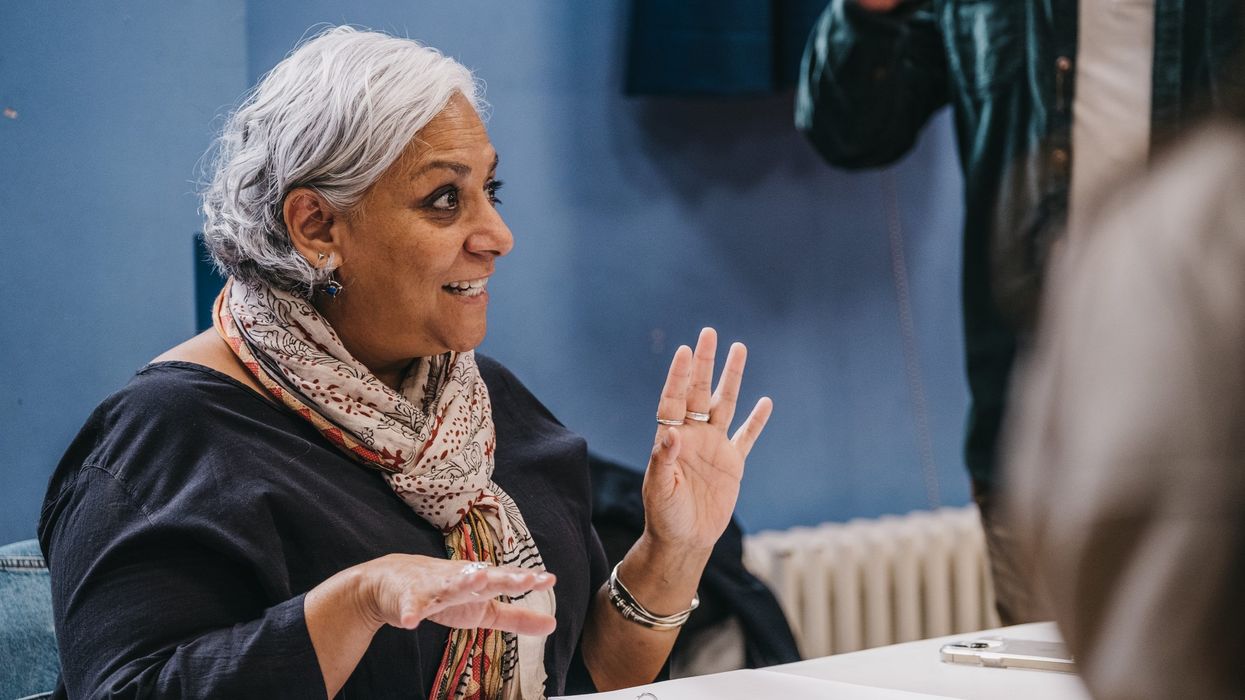




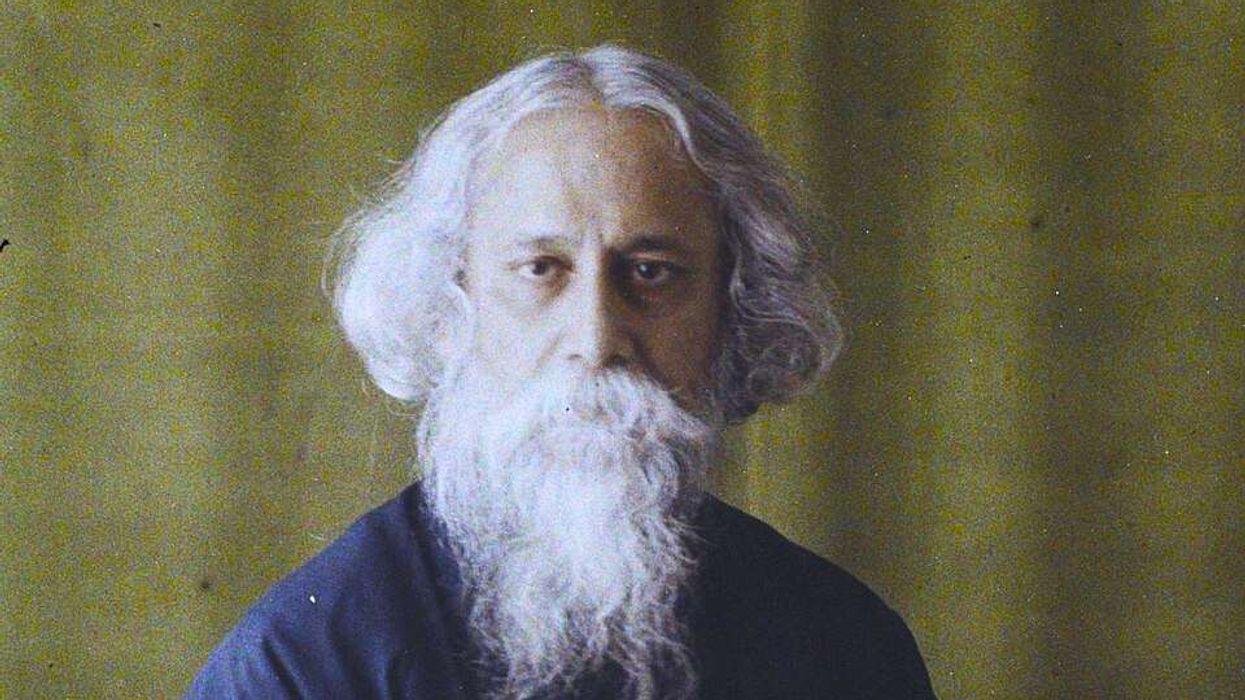
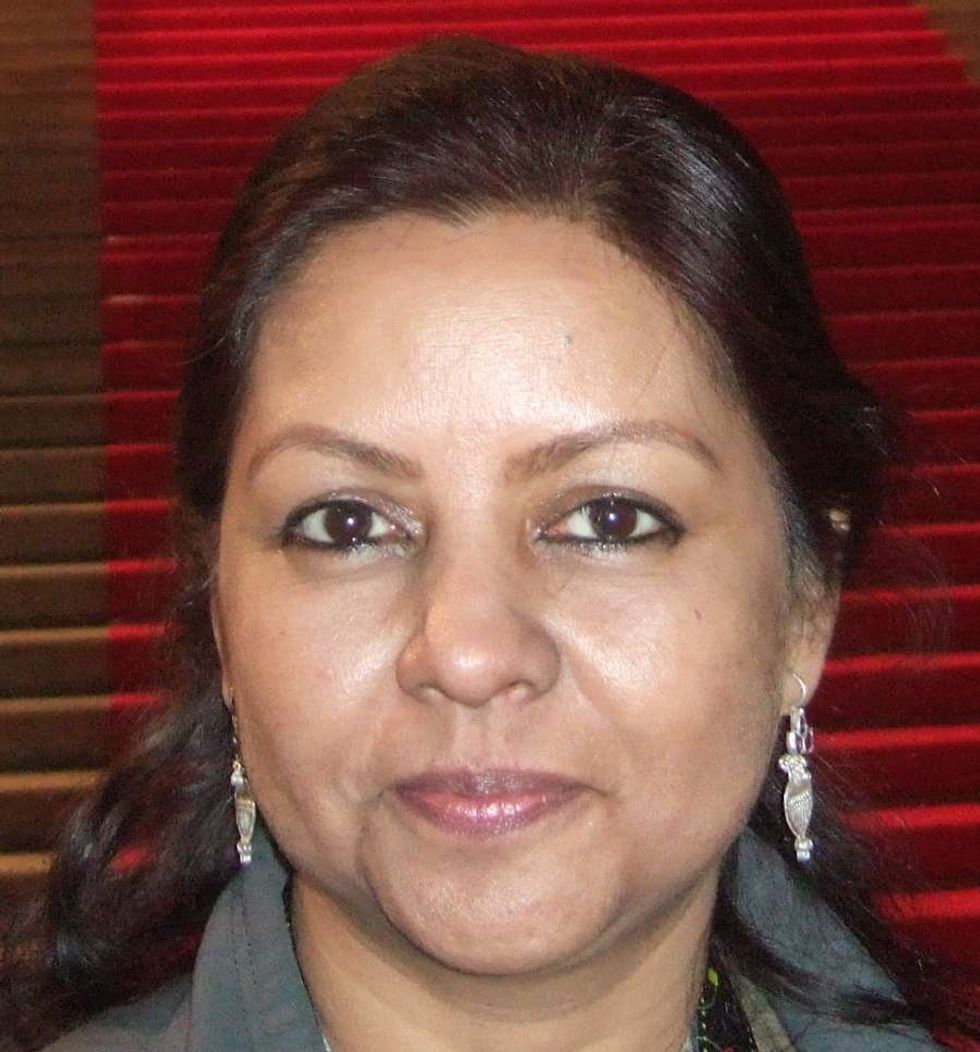 Sangeeta Datta
Sangeeta Datta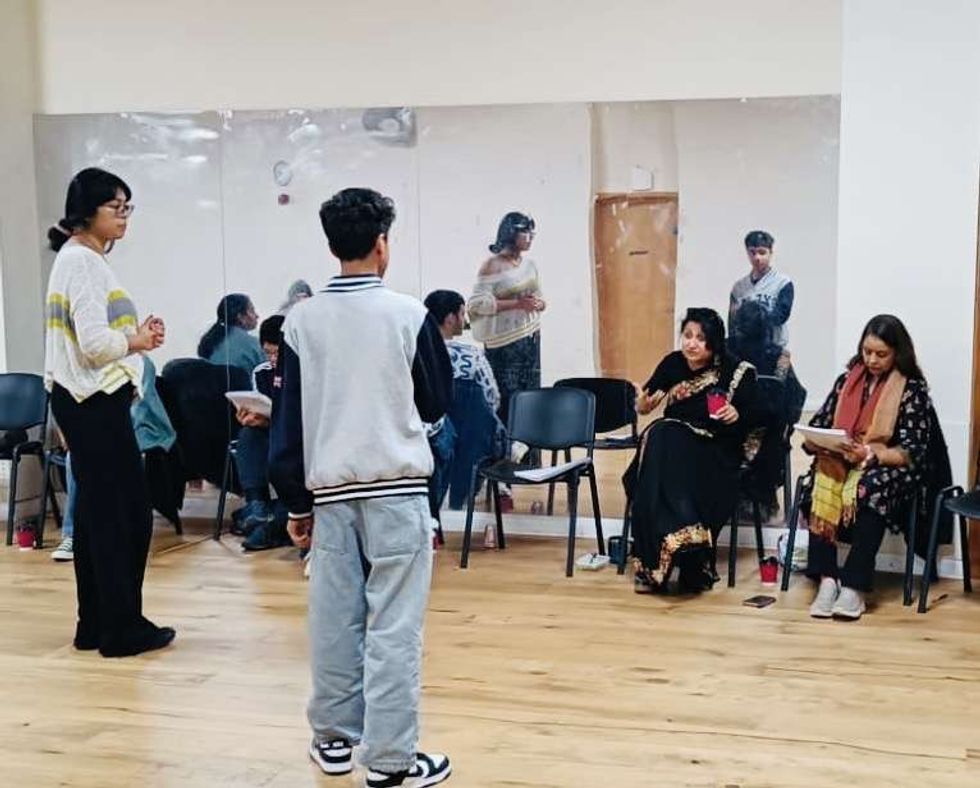 Scenes from the rehearsal
Scenes from the rehearsal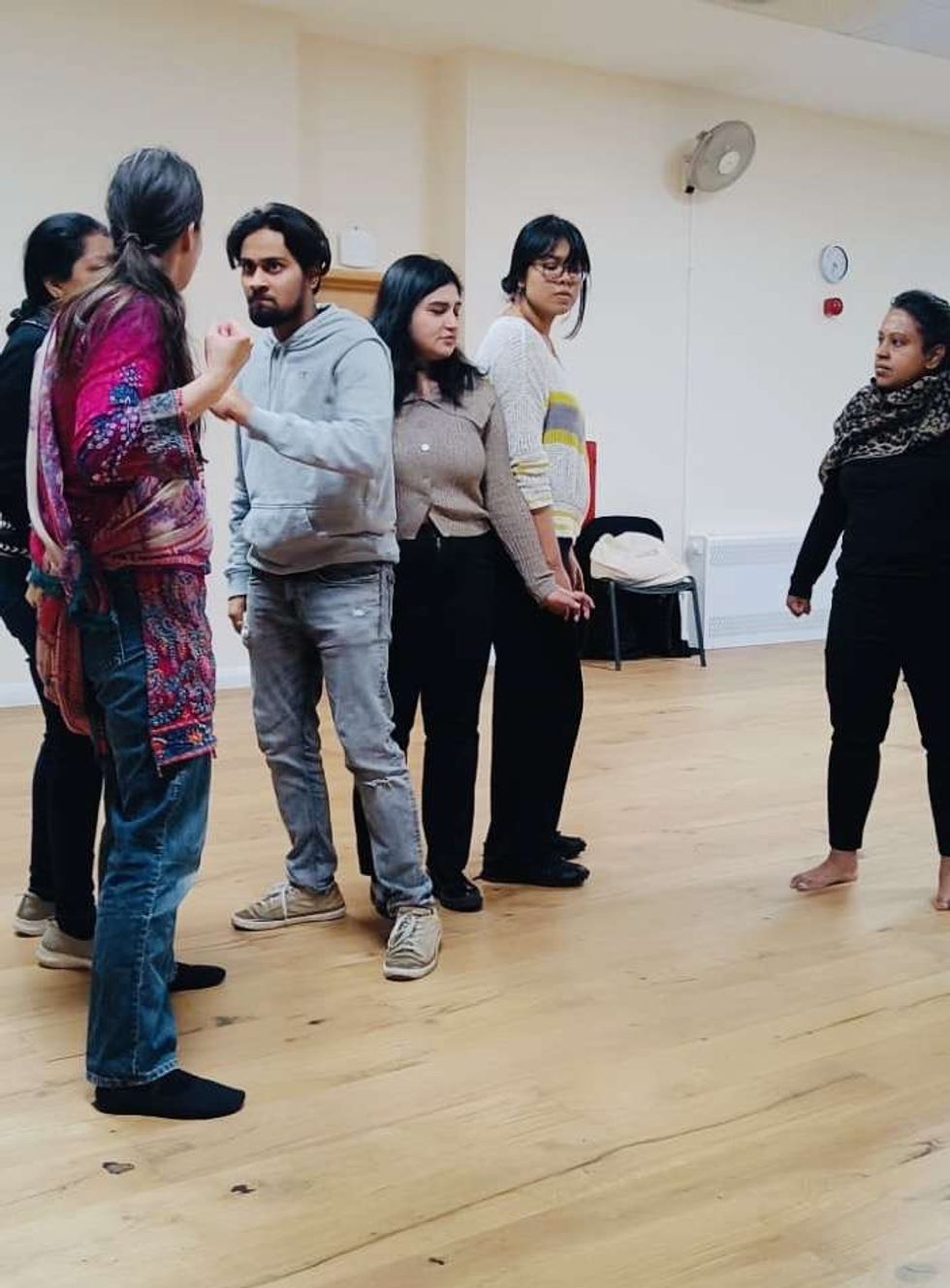 Scenes from the rehearsal
Scenes from the rehearsal






